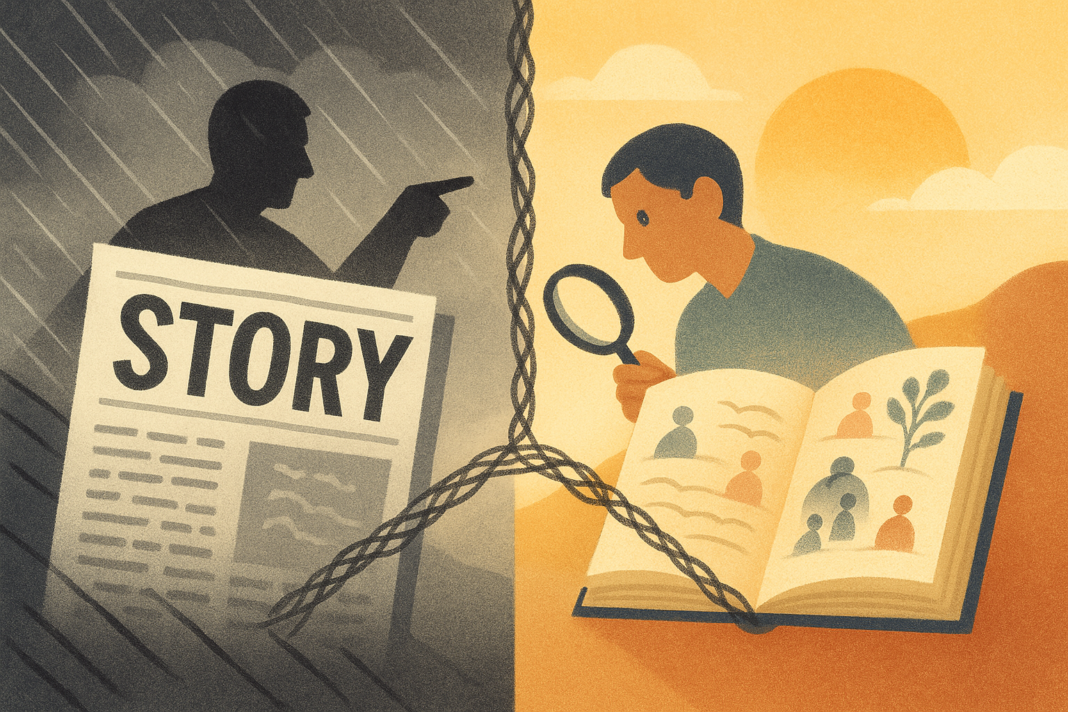In a world dominated by headlines, soundbites, and instant reactions, we often forget a fundamental truth: every story has another side. What we hear first may feel complete, but it rarely is. Behind every accusation lies a defence, behind every failure a reason, and behind every success a sacrifice we seldom see.
Wise individuals pause before drawing conclusions because they understand this simple reality—truth is often more complex than it appears.
Why Do We Miss the Other Side?
Human beings are wired for efficiency. Our brains love clear narratives: hero and villain, right and wrong, success and failure. But real life is messier. Stories are multi-layered, perspectives vary, and people act from contexts we don’t fully know.
Consider these examples that remind us how vital it is to seek the whole story.
1. The Manager Everyone Criticised
In a corporate office, an email leaked showing a manager harshly criticising an employee’s performance. Colleagues were quick to judge her as a toxic boss.
But later it emerged: the employee had falsified financial records, costing the company millions. The manager’s tone, though stern, was part of an urgent effort to protect others’ jobs.
Insight: What initially looked like cruelty was, in context, responsibility under immense pressure.
2. The Neighbour’s Loud Music
Imagine you live next door to someone who plays loud music every evening. You complain and resent them for weeks. One day, you confront them—only to discover they are caring for a terminally ill parent and use the music as a way to cope after long days in the hospital.
Insight: What appeared inconsiderate was actually an unseen cry for relief.
3. The Public Figure “Scandal”
A celebrity is vilified online for cancelling an event at the last minute. Social media erupts: “Unprofessional!” “Selfish!”
Later, it’s revealed they cancelled because their child was rushed to hospital that morning.
Insight: What seemed like irresponsibility was in fact prioritising family in a moment of crisis.
The Cost of One-Sided Stories
Jumping to conclusions breeds:
- Mistrust: We judge people unfairly, damaging relationships.
- Division: We polarise debates instead of solving problems.
- Regret: We act on incomplete information and later wish we hadn’t.
By seeking the other side, we invite understanding and reduce unnecessary conflict.
A Final Reflection
Every story has another side—sometimes many sides. True understanding requires humility: the humility to admit that we don’t know everything and the courage to explore perspectives beyond our own.
The next time you hear a shocking story, resist the urge to point fingers or share it hastily. Instead, pause and ask: “What am I not seeing here?”
Because often, the real story only begins where the first one ends.

